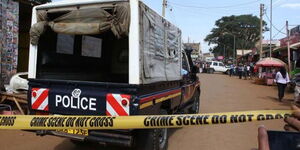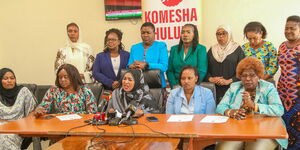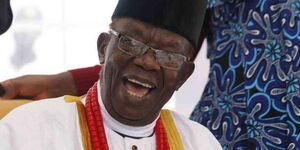The Ministry of Health has released a statement clarifying reports that a private hospital in Eldoret was involved in an international organ trafficking scheme.
In a statement dated April 15, the ministry confirmed that it was privy to suspicious activity from the hospital as of July 2023, when the Transplantation Society wrote to it.
"The Ministry of Health received a letter from the Transplantation Society dated 20th July 2023 with concerns over increased Israeli nationals receiving kidney transplants in Kenya," part of the statement read.
"The society highlighted concerns of an organised syndicate that was evading existing regulations in the country with suspicion of organ trafficking."
After the alarm was raised, the ministry revealed that a multidisciplinary team was instituted and tasked with investigating the matter in depth. They made their first fact-finding trip to the hospital between December 5 and 8, 2023.
The MDT comprised kidney transplant specialists, an ethicist, representatives from the Kenya Blood Transfusion and Transplant Services (KBTTS) Secretariat, the Kenya Medical Practitioners and Dentists Council (KMPDC), the Ministry of Health administration, and academic experts.
From the trip, they discovered that 372 transplants had been carried out at the hospital over the past five years, with most beneficiaries being residents of the East African Community, Australia, Israel, Japan, the USA, and the UK. 99 per cent of these were made using new technology.
However, the facility lacked sufficient documentation to verify the relationship between donors and recipients, with some of the documents revealing that donors came from different nationalities. All the Human Leukocyte antigens (HLA)- crucial before transplants – were made in India without approval by the MOH.
Additionally, no translation documents were made for those who did not understand English and several high-risk transplants were made, including for a patient with confirmed prostate cancer and extremes of age. Others were conducted despite poor donor-recipient compatibility.
The facility also lacked clinical morbidity and mortality reports and did not have multidisciplinary team (MDT) committee meetings.
After the findings, several recommendations were made to the ministry, including developing National Standards and Guidelines for the Transplant Services to bridge the legal gap that provides loopholes for such risky transplants.
Consequently, the Ministry developed the legal framework that is currently awaiting validation and a Kenya Policy on Blood, Cells, Tissues, Organs, and other substances of human origin.
It has also developed a bill on the same that is currently awaiting public participation.
Currently, the ministry is anticipating a second trip to the health facility to ensure compliance and planning to audit on all the other seven kidney transplant facilities in the region.
"The Ministry of Health will conduct a follow-up visit to the facility to assess progress on compliance and to conduct a comprehensive clinical audit," the statement read.
"Additionally, similar audits will be extended to all seven (7) transplanting facilities across the country to ensure uniform standards and adherence to national transplant regulations."












